Positioning "innovation in the new situation"
It can be said that no period of science and technology development, innovation and digital transformation has received such strong attention from the Party and State, with such strong political determination as in the past two years, specifically from December 2024 to present.

First, Resolution No. 57-NQ/TW on breakthroughs in science , technology, innovation and national digital transformation has created the most important political and legal foundation to bring the country to breakthrough development and prosperity. To concretize this resolution, the National Assembly quickly issued Resolution No. 193/2025/QH15 on piloting a number of special mechanisms and policies to create breakthroughs in science, technology, innovation and national digital transformation. Next, the Government issued Resolution No. 03/NQ-CP on the Action Program to implement Resolution No. 57-NQ/TW and most recently Resolution No. 05/2025/NQ-CP on piloting the crypto asset market. The "rails" are ready, just waiting for Vietnamese businesses and entrepreneurs to "roll" together!
Innovation in business now needs to be positioned to suit the new situation.
First, innovation is a long-term strategy, not a short-term savings tactic. Resolution 57-NQ/TW emphasizes that innovation and digital transformation are breakthroughs to upgrade productivity and competitiveness. For businesses, this translates into specific targets in the 3-5 year plan: proportion of revenue from new products/services, ratio of spending on research and development (R&D) and data, shortened product life cycle, speed of testing - fast learning - fast expansion.
Second , innovation is based on data and intellectual property. “Buying technology” is no longer enough; businesses must master data, algorithms, processes and designs, and know how to protect and commercialize intellectual property rights. In the context of piloting crypto assets, new property rights (patents, designs, anonymized data, carbon credits, digital revenue rights, etc.) have the opportunity to become financial goods for transparent capital mobilization.
Third, innovation accepts controlled risks. The spirit of the resolutions is “supervised experimentation”: being willing to allow new ways of doing things, but with data discipline, consumer safety and cybersecurity as prerequisites. For entrepreneurs, it is the ability to design a trial-and-error mechanism with measurement criteria, control legal-technological-market risks, and know when to stop when the hypothesis is no longer valid.
Fourth, innovation is linked to public-private goals. Innovation is not only a matter of individual business profits but also the economy ’s ability to absorb technology, the quality of public services and people’s welfare. Entrepreneurs therefore become co-creating partners with the State in tasks related to digital healthcare, digital education, precision agriculture, green logistics, and smart urban governance.
Institutional framework is available, entrepreneurs are the center of implementation
Resolution No. 57-NQ/TW lays the foundation: institutions go first, making data the main means of production, the State plays a role in creating and leading, businesses and people are the center - the subject; thereby expanding the experimental space for new technologies and business models, encouraging venture capital funds, linking institutes - schools - businesses, and standardizing the measurement of innovation efficiency.
Resolution No. 193/2025/QH15 adds a specific “toolbox” for science and technology, with a more flexible financial mechanism for research and development; greater autonomy in using research results; promoting knowledge commercialization and resource allocation based on results. This is a lever for the private sector to absorb and turn knowledge into products and markets.
Resolution No. 05/2025/NQ-CP opens a new capital channel for innovation, when intellectual property rights, data... can be digitized according to information disclosure, depository and supervision standards, businesses have more options to mobilize capital besides traditional credit, shares and bonds. More importantly, this market forces businesses to be transparent with data, standardize ownership rights, thereby improving the quality of governance.
To materialize the spirit of the innovation resolutions, businesses and entrepreneurs need to set revenue targets from new products, R&D and data spending levels in the annual budget; measure time to market, cost per test, test success rate, and early user retention rate. Without measurement, there can be no management; without management, there can be no expansion.
To turn data into production materials, businesses need to pay attention to investing in data. In particular, it is necessary to build a culture of "dare to think - dare to do - dare to take responsibility" accompanied by integrity discipline; all experiments must be transparent in hypothesis - data - success index, comply with intellectual property law, consumer protection and cyber security. Data integrity is not only for compliance but also a competitive advantage when accessing new capital markets.
Innovation today is not a slogan, but an operational discipline. Businesses need three pillars: transparent measurement, supervised experimentation, and smart capital mobilization. Building on the resolutions that paved the way, entrepreneurial spirit is demonstrated by organizing people, technology, data, and markets to turn ideas into growth.
Starting with small things: standardizing measurements; data management; linking institutes - schools - businesses; protecting intellectual property; and building a culture of daring to take responsibility will create big habits. When innovation becomes the norm, national productivity will automatically start, bringing Vietnam into a stage of high-quality growth .
Source: https://daibieunhandan.vn/su-menh-cua-doanh-nhan-viet-duoi-khung-the-che-moi-10390115.html






![[Photo] Solemn opening of the 1st Government Party Congress](https://vphoto.vietnam.vn/thumb/1200x675/vietnam/resource/IMAGE/2025/10/13/1760337945186_ndo_br_img-0787-jpg.webp)



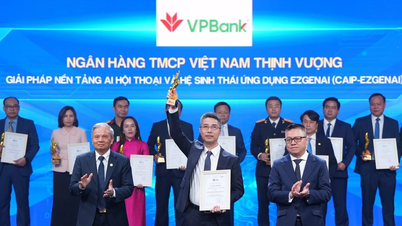

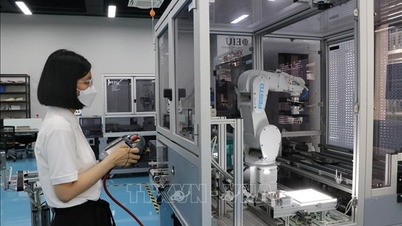



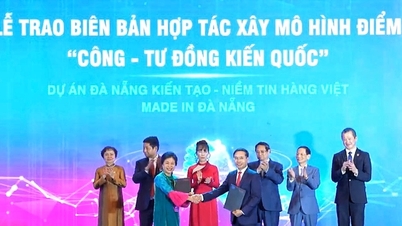

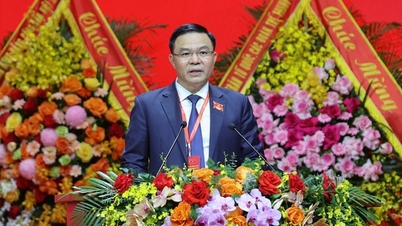













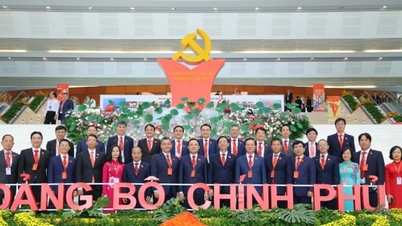



![[Photo] General Secretary To Lam attends the opening of the 1st Government Party Congress](https://vphoto.vietnam.vn/thumb/1200x675/vietnam/resource/IMAGE/2025/10/13/1760321055249_ndo_br_cover-9284-jpg.webp)

















































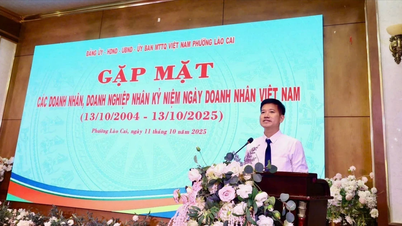





















Comment (0)